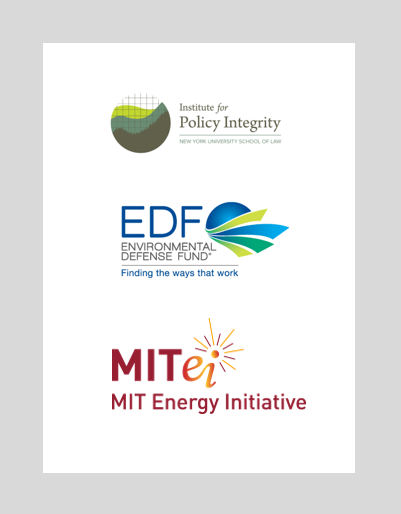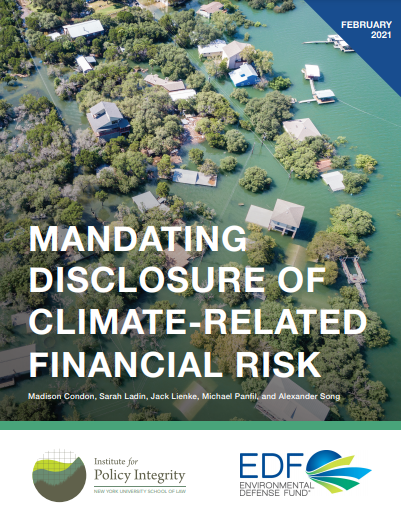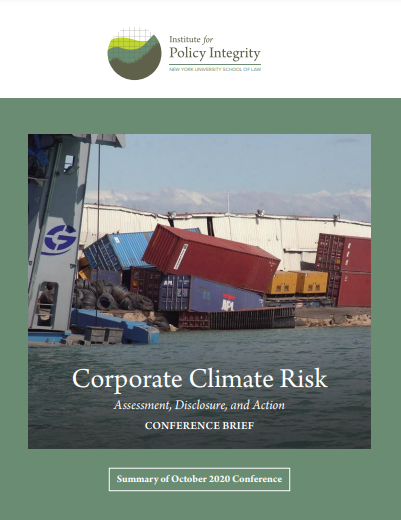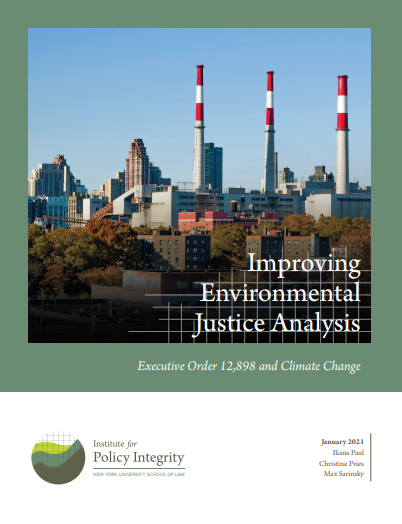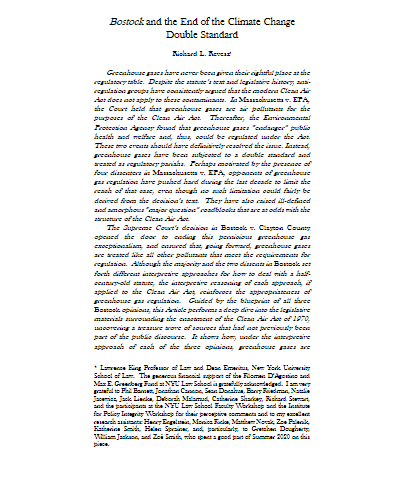-
Rate Design and Distributed Energy Resource Integration: Impacts on the Environment and Distribution System Costs
This project looks at the effects of different retail tariff designs on the deployment of distributed energy resource (DERs), and their subsequent effect on pollution, electric system costs, and customer bills. We use smart-meter data and techno-economic models to simulate the effects of more granular and cost-reflective tariff designs on DER investment and use.
This project is supported by the Alfred P. Sloan Foundation, and is a collaboration between the Institute for Policy Integrity, Environmental Defense Fund, and the MIT Energy Initiative.
-
McTeer Toney Gives Testimony on Climate Risk Disclosure in House Committee Hearing
Heather McTeer Toney, Climate Justice Liaison for the Environmental Defense Fund and Senior Advisor to Moms Clean Air Force, testified in a hearing on corporate climate risk held by the House Financial Services Committee. Included with her submitted testimony is our report with the Environmental Defense Fund on how the Securities and Exchange Commission can issue new, mandatory disclosure rules focused on climate risk.
-
Comments on Proposed Environmental Analysis Rule for Army Actions
The Department of the Army proposed a rule that would have the agency quantify the greenhouse gas emissions of significant actions but does not require impacts to be assessed using the social cost of carbon. We submitted comments urging the Army to not adopt the provision. Its environmental analyses should consider monetized climate impacts.
-
Mandating Disclosure of Climate-Related Financial Risk
Climate change presents grave risk across the U.S. economy, including to corporations, their investors, the markets in which they operate, and the American public at large. Unlike other financial risks, however, climate risk is not routinely disclosed to the public. This report, authored by Policy Integrity and the Environmental Defense Fund, urges the Securities and Exchange Commission to issue new, mandatory disclosure rules focused on climate risk.
-
Corporate Climate Risk: Assessment, Disclosure, and Action
Conference Brief
On October 2, 2020, the Institute for Policy Integrity and the Volatility and Risk Institute at NYU Stern School of Business convened a conference bringing together investors, companies, researchers, and regulators to discuss climate-related financial risks and identify opportunities to better assess, report, and act on them. This brief summarizes some of the major points of discussion from the conference, which featured different perspectives on various policy, economic, and legal issues.
-
Improving Environmental Justice Analysis
Executive Order 12,898 and Climate Change
Distributional and equity concerns have typically received short shrift in federal administrative decisionmaking, particularly with regard to actions with climate-change impacts. This report aims to aid advocates and policymakers in meaningfully addressing the disparate climate impacts of federal actions.
-
Comments to NHTSA on Delay of CAFE Penalties Increase
The National Highway Traffic Safety Administration's interim final rule delays the application of its 2016 inflation adjustment of the penalty for violating the corpoate average fuel-economy (CAFE) standards. We submitted comments explaining that the rule is untimely under the Inflation Adjustment Act, whose deadlines to amend the intial catch-up inflation adjustment expired years ago.
-
Amicus Brief on the SAFE Rule
We filed an amicus brief explaining how NHTSA and EPA's decision to finalize a rule that, even under their own analysis, will be net-costly to society, is arbitrary and capricious.
-
Bostock and the End of the Climate Change Double Standard
Guided by the blueprint of all three Bostock opinions, this article, published in the Columbia Journal of Environmental Law, performs a deep dive into the legislative materials surrounding the enactment of the Clean Air Act of 1970, uncovering a treasure trove of sources that had not previously been part of the public discourse. It shows how, under the interpretive approach of each of the three opinions, greenhouse gases are unquestionably pollutants for the purposes of the Clean Air Act. Because the approaches in the majority and dissents in Bostock—and thus a majority of the current Court—all point in the same direction, the era of greenhouse gas exceptionalism should now be over.
-
Federal Court Voids Trump’s Counterproductive ACE Rule
The U.S. Court of Appeals for the D.C. Circuit unanimously struck down the Trump administration’s toothless replacement of the Obama-era Clean Power Plan, which sought to reduce greenhouse gas emissions from the nation’s power sector. Richard Revesz and Dr. Burçin Ünel’s article on energy storage and greenhouse gas emissions was cited in the court’s opinion.

